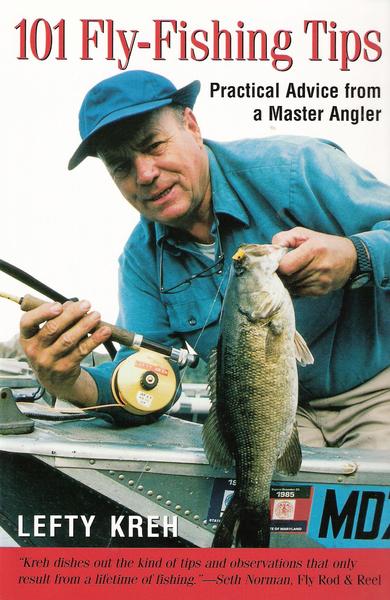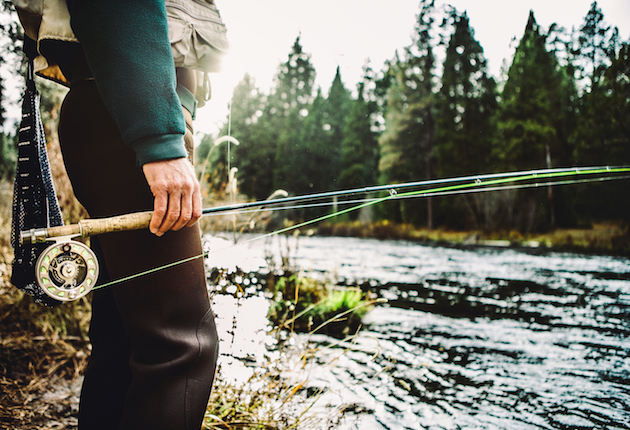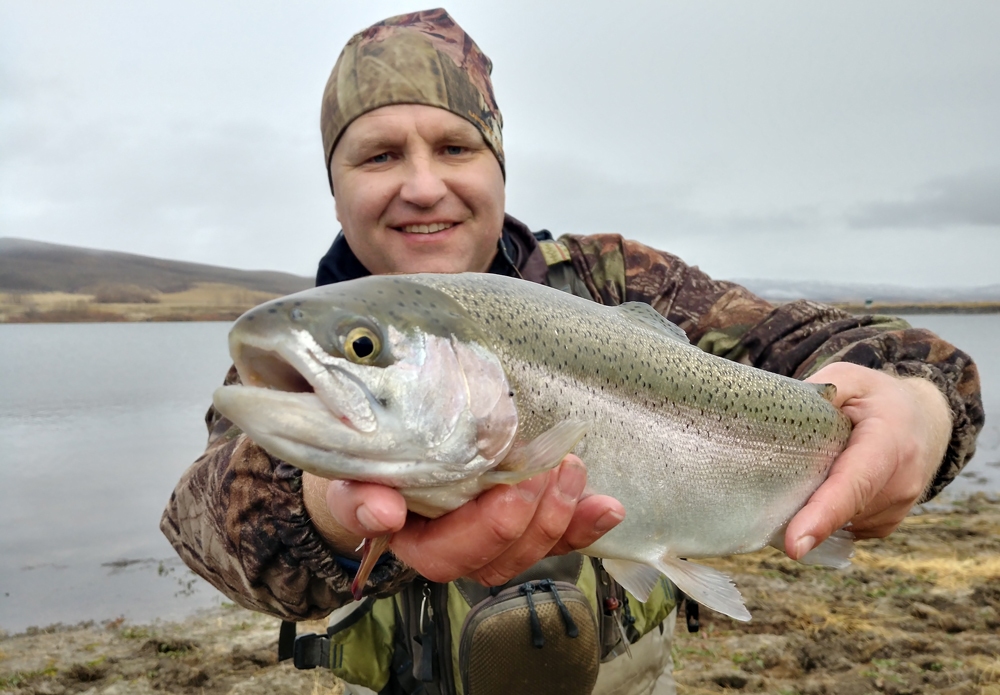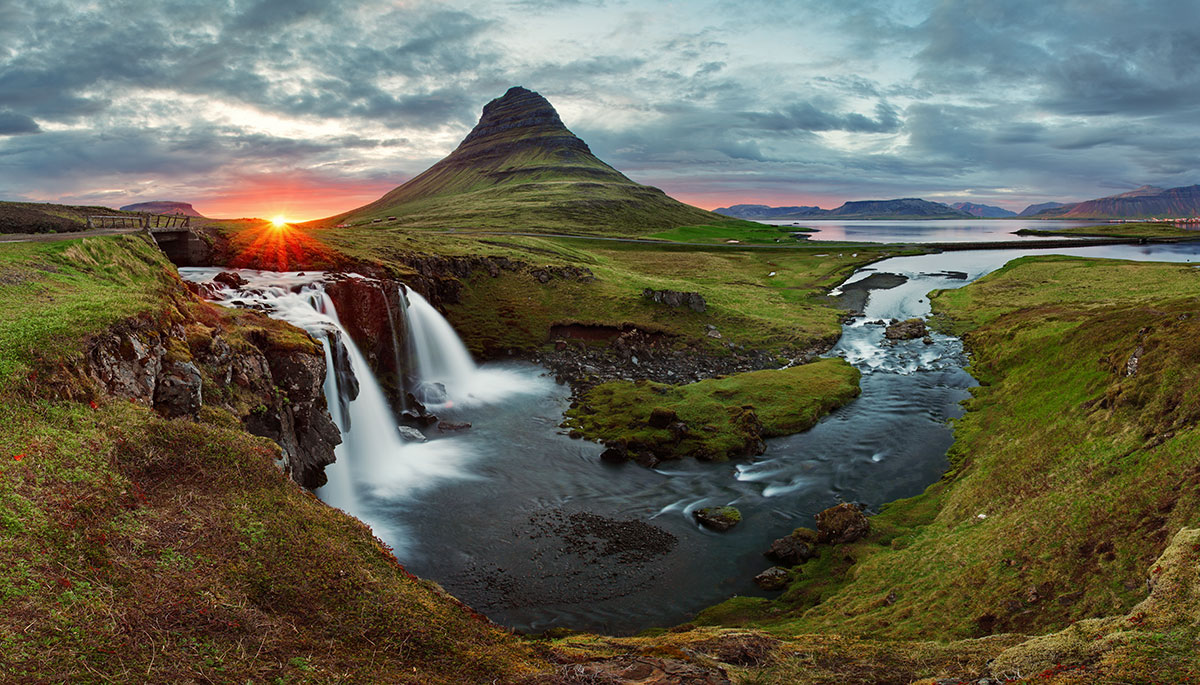Silence is as close as a Bose headset on a passenger plane. But not quiet. Quiet is the sound of a rainbow trout in a bankside lie slurping mayflies from the film; it’s the bay of a lone beagle in six million acres of wild America, and the whoosh of a merganser’s rise from the fog; it’s the ache in your body, the falling in your gut, and the rise again; and on the last day, it’s the easy in your chest recalling the journey.
Tatsamenie Lake, British Columbia—The 9-weight lays in five pieces on the plank floor, where yesterday it had staged strong and supple against a log post in only four.
My arms and back are taut with lactic acid. My hands ache, and the creases in my fingers are sliced red and moist from the burn of too many fish fights to recall. But that’s not why I can’t sleep. When my eyes close I hear riffles shushing ravens. I see sockeye and coho stacked in redds and kings cruising. I hear rainbows popping. And I plot.
I start low on the grassy bank and slip out, testing the top of my waders. I lay that big, bead-headed, blue-and-white Dolly Llama above the sandy pits and it drifts like tufts of dandelion, promising to rise, falling slowly until BOOM! The rod doubles. The reel sings. My fingers slip. The handle raps my knuckles. And I awaken, sitting straight up, staring at the busted rod and out through the window at the Tatsatua River.
It’s 3:30 a.m. and I can’t take it anymore. I get dressed. I tie a foam-and-deer-hair mouse onto my 6-weight. In a couple hours, a glow on the mountain will rise with the sun. Guide Greg Williams will have coffee on, but I’ll forego that for an hour or so for as many one-last-casts as I can manage before we load the floatplane.
The week has been a war of attrition with me and the salmon, both of us giving as good as we got. My gear is thin as a result, but I lay out what’s left: A spool of sinking line and one of floating; a half dozen leaders and some tippet; a clear box of beads—yellow, pink, orange, and red; a few deadly Dolly Llamas; irresistible egg-sucking leaches; acrobatics-inspiring grasshoppers; and a handful of wooly buggers—the beetle spin of fly fishing. It’s all staying as a small appreciation for my guide Greg and renowned conservationist Shane Mahoney, my fishing partner for a few days.
First light pulls my feet down a trail they’ve worn this week. Dew hangs as pregnant as the morning. At 6 a.m. I am waist deep, studying the film on my favorite stretch of river, warming in the light, and listening to ravens caw through spruce tops. On the near bank, water laps at the first spawned-out salmon, signaling that grizzlies will do the same within the week.
At the far bank, trout are rising. I lay the mouse in nice and snug, and it drifts along the grass. Pop, its gone. Tight line. Bent rod. The rainbow jumps and bucks. And the world is in slow motion. One fish. I cup my hand and drink from the river. Two fish. A pair of eagles fly overhead. Just one more fish, I think. Three fish. Tuffy, the only beagle in the valley, barks. Okay, well maybe just one more cast. My 7 a.m. breakfast is on. Okay, one more.
The scents of wood smoke, strong coffee, eggs, and baking bread fill the kitchen. Shane, Greg, and I soak in the warmth and fill our bellies. We laugh and trade stories of filled waders and unexpected swims, smoke-thick mosquitos, close calls with bears, battles scars. We relive the ones that got away and revel in those that didn’t. Broken hook, busted rods, busted knuckles, busted flat in Baton Rouge, bust a gut laughing at the tales like the one about the guy in the outhouse with the bats.
Greg rips down on the propeller. The motor kicks. He hops into the two-seater floatplane. The throttle sends the engine pitch rising with the nose of the Piper Super Cub. We are up and climbing from blue water to bluer sky. Just off the starboard wing, the glacier glows, and moment by moment it grows. Below, two hunters stand at opposite ends of the drop zone. A third sits by a fire, two ram heads at his side.
We circle, slow, and drop. Greg pops open the cockpit and rolls us so that I am looking down the wing at the glacier. The wind beats me in the face. The plastic bag around the duffel in my lap pops.
“Now.”
“Yes, now.”
I throw the bag out and watch it hit and skid along the glacier. The hunters wave. Greg closes the cockpit, wags the wings, laughing like a kid, and turns us toward Telegraph Creek.
Near Tahltan Lake, we drop for a better look at a sow grizzly and her cub who run, stop, and then rare up for a better look at us. A while later, Greg points out a herd of mountain goats crossing a high mesa, and then a ram standing sentinel over a steep face somewhere near the Telegraph Creek.
The engine hums deep and soothing now. Greg turns and looks and nods. And I nod and can’t help but smile with my whole self. As I can tell, he does the same.
Telegraph Creek, Juneau, and home lay ahead, but not yet. I still have some time here. So, I close my eyes and breathe in the quiet, banking it for my last, last day.
 Practical Advice from a Master Angler
Practical Advice from a Master Angler
By Lefty Kreh
B/w illus; 5×8 inches, 96 pgs.
Lefty Kreh is one of the most experienced, well-prepared, and thoughtful anglers in the world. In this book her shares this wealth of experience with a variety of commonsense solutions to the problems that anglers face. Including: how to pacify a fish, which hook-sharpening tools to use, when & how to take a rod apart when it’s stuck, what to do when a fish runs under your boat, how to dry waders & find leaks, & much more. Buy Now





Well done.